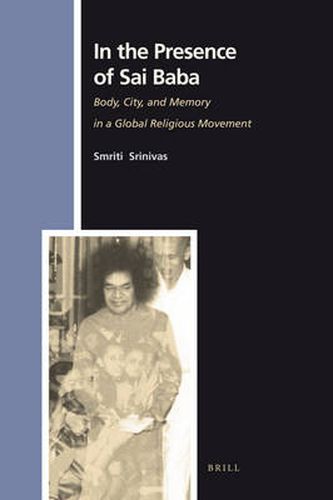Readings Newsletter
Become a Readings Member to make your shopping experience even easier.
Sign in or sign up for free!
You’re not far away from qualifying for FREE standard shipping within Australia
You’ve qualified for FREE standard shipping within Australia
The cart is loading…






The Sai Baba movement, centered on the Indian guru Sathya Sai Baba (b. 1926), today attracts a global following from Japan to South Africa. Regarded as a divine incarnation, Sathya Sai Baba traces his genealogy to Shirdi Sai Baba (d. 1918), a mendicant in colonial India identified with various Sufi and devotional genealogies. The movement, thus, has roots in Shirdi Sai Baba but as it globalizes, it has developed conjunctions with other religious traditions, New Religious movements, and New Age ideas. This book offers an account of the Sai Baba movement as a pathway for charting the varied cartographies, sensory formations, and cultural memories implicated in urbanization and globalization. It traverses the terrain between social theories for the study of religion and cities —themselves a product of modernity—and the radical, creative, and unexpected modernity of contemporary religious movements. It is based on ethnographic research carried out in India, Kenya, and the US.
$9.00 standard shipping within Australia
FREE standard shipping within Australia for orders over $100.00
Express & International shipping calculated at checkout
The Sai Baba movement, centered on the Indian guru Sathya Sai Baba (b. 1926), today attracts a global following from Japan to South Africa. Regarded as a divine incarnation, Sathya Sai Baba traces his genealogy to Shirdi Sai Baba (d. 1918), a mendicant in colonial India identified with various Sufi and devotional genealogies. The movement, thus, has roots in Shirdi Sai Baba but as it globalizes, it has developed conjunctions with other religious traditions, New Religious movements, and New Age ideas. This book offers an account of the Sai Baba movement as a pathway for charting the varied cartographies, sensory formations, and cultural memories implicated in urbanization and globalization. It traverses the terrain between social theories for the study of religion and cities —themselves a product of modernity—and the radical, creative, and unexpected modernity of contemporary religious movements. It is based on ethnographic research carried out in India, Kenya, and the US.